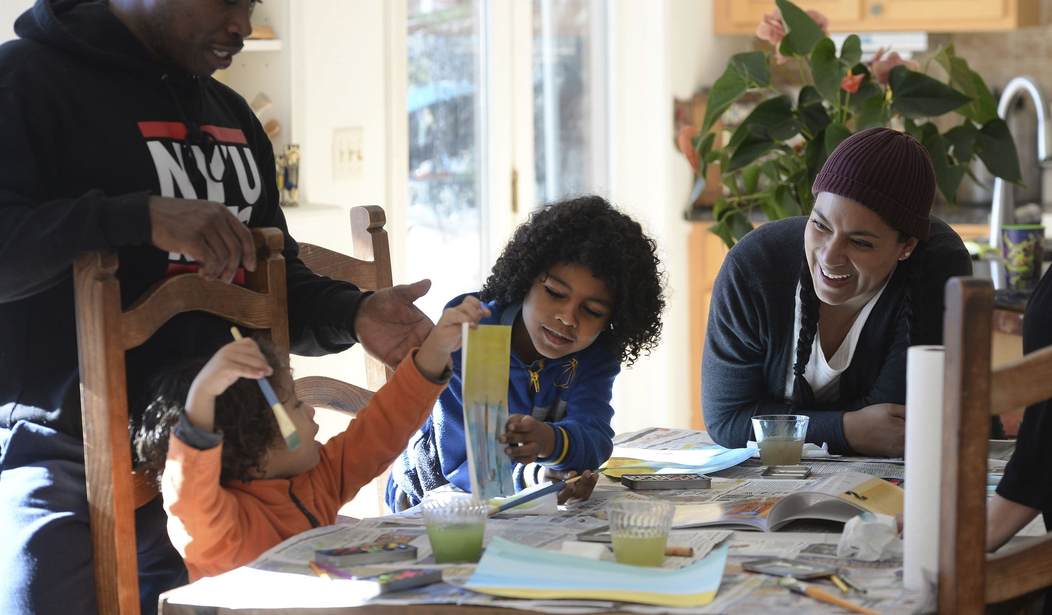One of the more disastrous results of both the COVID pandemic and the government’s response to it has been the effect that’s been seen on America’s schoolchildren. While some children were tragically lost to the disease, the vast majority were relatively unaffected as compared to the elderly and those with underlying health disorders. The biggest impacts came in the form of disruptions to their education, a lack of socialization with their peers, and the emotional and psychological impacts some of the government mandates had on them. In terms of education, many parents were suddenly thrust into the position of becoming teachers and attempting to guide their kids through online “remote learning” programs, many of which were difficult to understand or technologically challenging. But new data released by the Associated Press this week reveals an interesting trend taking shape. Once they got the hang of doing homeschooling, a lot of parents decided to stick with it even after the public schools reopened.
The coronavirus pandemic ushered in what may be the most rapid rise in homeschooling the U.S. has ever seen. Two years later, even after schools reopened and vaccines became widely available, many parents have chosen to continue directing their children’s educations themselves.
Homeschooling numbers this year dipped from last year’s all-time high, but are still significantly above pre-pandemic levels, according to data obtained and analyzed by The Associated Press.
Families that may have turned to homeschooling as an alternative to hastily assembled remote learning plans have stuck with it — reasons include health concerns, disagreement with school policies and a desire to keep what has worked for their children.
Data from 18 states that share such figures shows that homeschooling surged by 63% in the 2020-2021 school year. This was expected because so many of the schools were shut down. But for the 2021-2022 year, it only dropped by 17%, so there are still a vastly larger number of families doing it. The AP interviewed one mother who declared that her fifth and seventh-grade children were never going back to traditional public schools. And she’s far from being alone in that choice.
So why is this happening? The AP analysis boils it down to a few generic factors they describe as a combination of “health concerns, disagreement with school policies and a desire to keep what has worked for their children.” That’s one way to put it, but there is clearly more to the story. For one thing, while I’m sure that there are some parents who are still too frightened of COVID to send their kids back, most have accepted the government’s assertions that the situation is under control.
I would imagine that a much bigger factor is the realization by many parents that too many public schools simply don’t do a very good job, despite the endless amounts of money that state and local governments flush into them. This is particularly true in more economically disadvantaged neighborhoods, where graduation and college acceptance rates remain unacceptably low.
On top of that, there is obviously a growing realization among parents that the nation’s public schools have largely turned from being centers of education to centers of indoctrination. Doing away with honors programs (because they are supposedly racist) and adding in highly sexualized “gender awareness” programs isn’t helping matters either. For every parent who learns that the school told their children ‘don’t tell your parents,’ there are probably a dozen more families pulling the plug on public schooling. And as an added bonus, children being educated at home don’t need to put on a damn mask.
My primary concern with this trend is the potential lack of peer socialization that homeschool students may experience. Parents can surely get around that if they are being attentive, but other options are available. If enough parents in a given community have committed to homeschooling their children, perhaps they could band together with others who hold similar values and take turns hosting classes for multiple kids. That would relieve the burden on individual parents, potentially offering them more time to be able to continue working while simultaneously giving the children more opportunities to interact with others in their age group. For any of you considering such an option today, you might want to check out the National Home School Association. They provide a wide range of resources and curricula, along with instructions for every step of the education process. And you can also locate other parents in your area who have made the choice, allowing you to connect and share the responsibilities between you.








Join the conversation as a VIP Member